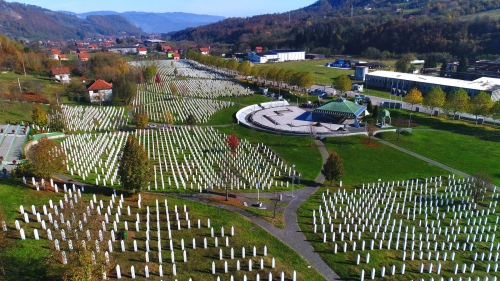Libya's Gaddafi: Political Pariah or Pragmatic Leader?
Recent efforts made by the Libyan government to see a peaceful end to the hostage crisis on the island of Jolo, in the southern Philippines, has been met with overwhelming suspicion by the international community.
Despite its recent success in obtaining the release of some of the hostages from the Filipino rebel group Abu Sayyaf, the international community has yet to give Libya credit. During a briefing last week at the U.S. State Department, a spokesperson said they were not impressed with Libya's recent efforts.
In fact, some perceived the Libyan role in the negotiations with Abu Sayyaf as politically motivated, while others undermined Libya's diplomacy altogether.
Le Canard Enchaine, a popular French weekly, quoted a high-level government official as saying, "politically, we paid a high price..." in dealing with Libya to obtain the release of the French nationals.
Likewise, the British press treated Libya as a political pariah, putting doubt on its intentions for such involvement. In an article published last week, Alex Duval Smith said that Libyan President Mu'ammar Gaddafi's efforts to free the remaining hostages, and his willingness to pay a heavy ransom is ultimately motivated by his hope to enhance his image on the international stage.
Smith argued however, that the "central figure in the Libyan leader's reinvention of himself... has been the former South African President, Nelson Mandela." According to the writer, Mandela's stand in support of Libya's Col. Gaddafi, is what has in fact helped Libya's image.
British journalist Robert Fisk wrote, "Col. Gaddafi has weaved many a tangled web in his time, but few as complex as this". Fisk linked Libya's military assistance to the Moro Islamic Liberation Front in the Philippines, to the time of Gaddafi's emergence to power in 1969. Abu Sayyaf, which broke away from the Moro Front after an autonomy agreement reached with Manila, called for the lifting of the UN sanctions on Libya in 1995. When Gaddafi offered the Abu Sayyaf $24 million to local charities in exchange for the hostages, Fisk concluded suggested the money would be returned to Libya and to "the man who so generously supported their parent 'liberation' organization three decades ago..."
If we will accept the argument that Libya deserves to be economically sanctioned, isolated and demonized, why should we ridicule its efforts to improve its distorted image? Why are many media outlets, mainly in the West, treating the Libyans attempts as a shrewd scheme aimed at tricking the world into believing that Libya is not as wicked as it appears?
The media's focus on Libya's "real intentions" reflects two noteworthy points. First and foremost, many are embarrassingly uninformed of the fact that Libya's peace initiatives began long before Abu Sayyaf's group decided to kidnap some tourists, and journalists, for whatever political motivations the group had in mind.
Joined by Egypt, Libya has been ceaselessly working to end the Sudanese civil war and to restore peace and harmony to the war-torn country.
Libya has been a major advocate that contributed to the end of the Ethiopian-Eritrean war, which sadly exhausted both countries and devastated their already ailing economies.
In the Congo's bloody war, which has entangled neighboring countries such as Angola, Namibia, Zimbabwe, Uganda and Rwanda, Libya has attempted to end the conflict there as well. In fact, the lives of Libyan peacekeepers were put at great risk when they were dispatched to maintain stability during the recent signing of a peace agreement between the warring parties.
Why have only a few remembered the vital role Libya has played in Africa? Why have so many rushed to criticize its role as self-serving on Jolo Island? Perhaps it is because the majority of the hostages in the Philippines crisis are from counties that have major political weight, such as France, Germany and others.
These countries have a vested interest in keeping the public's view of Libya as an enemy state as part of a wider effort to contain potentially powerful players in the region. It is indeed unfortunate that Libya's recent efforts will not be viewed as a step toward making it a functioning member of the international community.
Like many other countries in the Middle East and around the world, Libya has it's own internal and external deficiencies, weaknesses and failures. However, it's disturbingly unfair to pre-judge a country's entire experience according to these shortcomings. Putting everything aside, Libya must be credited for its peace promotion efforts in Africa, the Philippines and elsewhere. And even if the main motivator was to polish its own image, Libya has embarked on a positive strategy.
(Ramzy Baroud is a freelance journalist living in Seattle, Washington. He is a regular contributor to iviews.com)

















